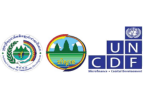Employer Description
Cambodia is among the countries most at risk from the impacts of climate change. According to the Global Climate Risk Index, Cambodia ranked 13th from 1995 to 2015 and 8th in the World Risk Index in 2016. The impacts of climate change include flooding, droughts, intense storms, and heatwaves. These events have affected several sectors such as agriculture, forestry, fisheries, ecosystems, infrastructure, human health, and energy. Climate change has also increased the vulnerability of people due to high exposure, sensitivity, and low adaptive capacity at the sub-national level. These impacts negatively affect socio-economic development. Therefore, it is crucial to strengthen institutional capacities for effective planning, budgeting, and policy-making—particularly at the sub-national level.
Currently, the Royal Government of Cambodia has launched the Cambodia Climate Change Strategic Plan (CCCSP) 2024–2033, which includes activities focused on mitigation, adaptation, governance, and awareness raising. Mitigation efforts aim to reduce greenhouse gas emissions through the promotion of renewable energy, improvements in energy efficiency, reforestation and afforestation, sustainable transportation, and effective waste management. Adaptation activities are designed to strengthen the adaptive capacity of various stakeholders, economic sectors, and natural resources.
Governance measures support the effective implementation of the strategy by addressing gaps in data and technology, ensuring adequate financing, developing human resources, improving the policy and regulatory environment, and enhancing inter-agency coordination. In addition, awareness-raising efforts—through education, community outreach, and policy advocacy—are intended to foster broader participation in and ownership of climate actions.
